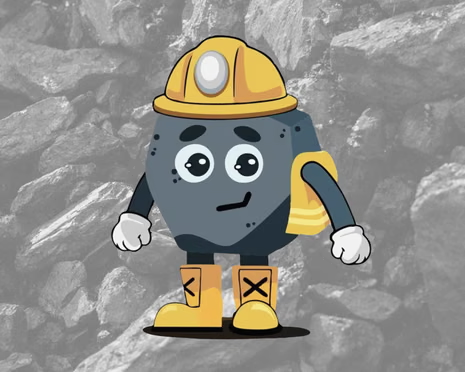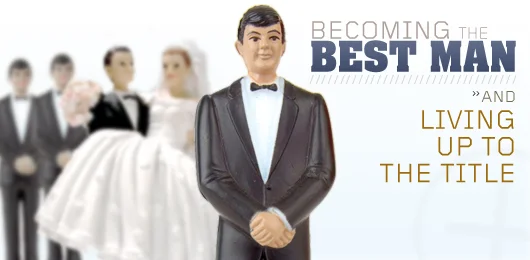I received an email from a person who was upset with me last week.
Years ago, at one of my author talks, this person asked if I might read his book and offer some advice.
I said yes, then I failed to do so.
I don’t remember any of this, but I don’t doubt that it is true.
This person is now a successful, self-published author. On Christmas Eve, he decided to take a moment and write to me, letting me know that he didn’t need my help after all. He had succeeded despite my failure to reach out with advice. He wished that I would’ve been honest with him at the time and simply declined his request for help. He told me that he thought that I was different. Better than the kind of person who makes promises he doesn’t intend to keep. He had thought that I might be the kind of person who understands the importance of mentors in a person’s life.
But good news, he added. He also wanted me to know that my lack of concern for fledgling writers stimulated his desire to be a positive role model for others. So unlike terrible me, he now makes a point of helping young writers.
He was snarky, smug, and mean.
Quite the email to receive on Christmas Eve.
I didn’t include the email here because I don’t want to violate an expectation of privacy, but I wrote a response that I thought I’d share, only because this isn’t the first time I have received an email like this. In the past, I’ve had writers, storytellers, public speakers, and even teachers send me their work, asking for my advice, assistance, a critique, a connection, or something similar, and when I don’t, they often lash out in anger.
Why didn’t you watch my story and tell me how to fix it? Why won’t you pass my story onto your agent? Why can’t you help me edit my book?
In the most unfortunate of these circumstances, a writer asked me for advice on the first three chapters of her manuscript. I agreed, and on the very day when I was writing suggestions in the margins of a very good manuscript, literally as I was writing those comments, she wrote back and told me to destroy the manuscript. “I’ve been waiting more than a month for your response, so you obviously don’t care,” she wrote.
Against Elysha’s better advice, I wrote back to the woman, ignoring her insult-laden email, pretending it didn’t exist, and told her I was finishing my critique at that very moment and had really liked the pages.
She responded by calling me a liar, ordering me to destroy the manuscript, and threatening to sue me if I ever stole her idea.
The point here is that creative people can sometimes be difficult, rude, annoying, demanding, and worst of all, self-destructive. In so many cases, they can be their own worst enemies. Not all creative people, of course, but enough of them that it’s worth mentioning.
My agent once told me that I’m a fine and talented writer, but I’m also not a difficult or awful person and suggested I keep it that way. She explained that it makes an enormous difference with publishers, editors, publicists, bookstore owners, foreign agents, and the like when you treat them well, behave appropriately, and quickly forgive slights.
To that end, in hopes that I might forestall future acts of self destruction, I thought I’d include my response to this author here, which I also sent on Christmas Eve:
___________________________________
Dear Author,
My advice to you is admittedly coming later than expected, but I offer it with an open heart:
Your email was an awful bit of business. You are correct that I don’t specifically recall meeting you, and you are correct in that I failed to reach out to you, but you also have no idea what may or may not have befallen me in the time since we first met and you passed on your books onto me.
Perhaps we met days before my mother unexpectedly passed away. Or a week before I was diagnosed with muscular dystrophy. As an elementary school teacher, perhaps your books arrived in my hands a month before I learned that one of my students was diagnosed with cancer or another’s mother had passed away. Or maybe it was just prior to my friend losing his wife. Or on the eve of my dog of 18 years passing away.
All of these things have actually happened in the past decade or so, and given that I don’t know the date of our meeting, there’s no way of knowing.
I can only say this:
Your assumption that I promised something and then willfully ignored that promise is a terrible thing. How dreadfully and cruelly presumptuous of you. Thankfully, I’ll be fine. Your words found no purchase with me. Far worse things – just as unjustified as yours – have been said about me over the years, and those comments, too, bounced off me rather easily.
When you are a public figure, criticism is unavoidable.
But your words really could’ve hurt someone else. Those words could’ve really stung someone other than me.
And on the day before Christmas? What were you thinking?
You have no idea what may or may not have taken place in my life since we met. No idea of what struggles I may have endured. No idea what could’ve come between me and your books. To send an email like that – one day before Christmas – was a horrendous and callous act.
It’s also entirely possible that I lost your books, as unfortunate as that might be. Or that I simply forgot about you, as egregious as that might be. Perhaps I became overwhelmed with work or deadlines, put your books aside, and then flat out forgot about them. Not great on my part, but these things happen. Life happens. As a husband, father of two children, teacher of two dozen fifth graders, the owner of two small businesses, and the author of several books and two columns with publishers and editors constantly asking for my work, things happen.
You are not the only ball that I have dropped.
Ask my principal. Ask my wife. Ask my students. I sometimes fail. We all do.
But here is what I know:
An email like the one you sent does not help you. Burning bridges helps no one. Unnecessary cruelty is never necessary. I am happy to hear that your career is going well, but my advice to you – if you’ll still have it – is that you can never have enough friends, allies, contacts, comrades, blurbists, colleagues, and acquaintances. I’m not implying that you need me or will ever need me, but you might. You never know.
Like you, I have helped many fledgling authors in the past. I’m mentoring one right now. I always tell them to be on the lookout for a new connection.
I honestly can’t imagine why you would send such a scathing email to a fellow author. Are you hoping to ruin my holiday? Change my ways? Fill me with regret?
Or did sending this email make you feel better in some way? Were you hoping for a “Take that, you rascal!” kind of moment for yourself?
Regardless of your motive, my advice to you is to avoid this kind of awfulness in the future. Be less presumptuous. More open minded. More forgiving. Seek to make connections rather than cutting them off completely. Be ready to offer a second chance. Don’t assume you know everything. Don’t forget how tragically flawed we human beings can be.
Kindness wins every time. Compassion rules. Forgiveness is divine.
This is my advice. You asked me for it years ago, and I failed you. I offer this to you instead. I hope you find it helpful.
Happy holidays to you and yours.
Warmly,
Matt
Matt
___________________________________
I have yet to receive a response.






